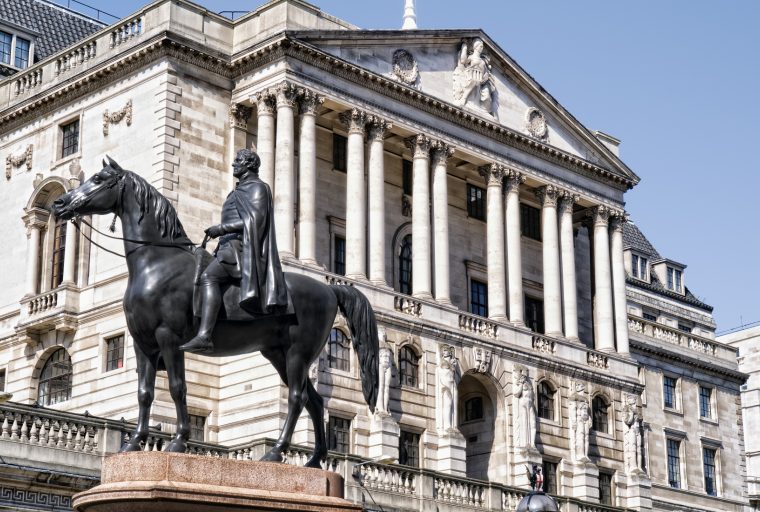The Bank of England needs to work collectively with the government to offset the impact that the coronavirus outbreak is having on supply chains, according to incoming governor Andrew Bailey.
 Bailey, who takes over at the BOE on March 16, told U.K. lawmakers at his appointment hearing on Wednesday that the bank needs to be nimble in its efforts to tackle the threat. He also highlighted that officials have a number of tools at their disposal, beyond monetary policy.
“It is quite reasonable to expect that we are going to have to collectively provide some kind of supply chain finance in the not very distant future now to ensure the effects of this shock from the virus are not damaging to many forms of activity, and especially to small firms,” Bailey said. “And we are going to have to move very quickly to do that.”
The address marks Bailey’s first public comments addressing the U.K. monetary policy outlook as he prepares to take over from governor Mark Carney. They come amid mounting speculation from traders and economists that the BOE will follow the Federal Reserve in responding to the virus with an emergency interest-rate cut before its March 26 meeting.
Bailey, who takes over at the BOE on March 16, told U.K. lawmakers at his appointment hearing on Wednesday that the bank needs to be nimble in its efforts to tackle the threat. He also highlighted that officials have a number of tools at their disposal, beyond monetary policy.
“It is quite reasonable to expect that we are going to have to collectively provide some kind of supply chain finance in the not very distant future now to ensure the effects of this shock from the virus are not damaging to many forms of activity, and especially to small firms,” Bailey said. “And we are going to have to move very quickly to do that.”
The address marks Bailey’s first public comments addressing the U.K. monetary policy outlook as he prepares to take over from governor Mark Carney. They come amid mounting speculation from traders and economists that the BOE will follow the Federal Reserve in responding to the virus with an emergency interest-rate cut before its March 26 meeting.
 Bailey, who takes over at the BOE on March 16, told U.K. lawmakers at his appointment hearing on Wednesday that the bank needs to be nimble in its efforts to tackle the threat. He also highlighted that officials have a number of tools at their disposal, beyond monetary policy.
“It is quite reasonable to expect that we are going to have to collectively provide some kind of supply chain finance in the not very distant future now to ensure the effects of this shock from the virus are not damaging to many forms of activity, and especially to small firms,” Bailey said. “And we are going to have to move very quickly to do that.”
The address marks Bailey’s first public comments addressing the U.K. monetary policy outlook as he prepares to take over from governor Mark Carney. They come amid mounting speculation from traders and economists that the BOE will follow the Federal Reserve in responding to the virus with an emergency interest-rate cut before its March 26 meeting.
Bailey, who takes over at the BOE on March 16, told U.K. lawmakers at his appointment hearing on Wednesday that the bank needs to be nimble in its efforts to tackle the threat. He also highlighted that officials have a number of tools at their disposal, beyond monetary policy.
“It is quite reasonable to expect that we are going to have to collectively provide some kind of supply chain finance in the not very distant future now to ensure the effects of this shock from the virus are not damaging to many forms of activity, and especially to small firms,” Bailey said. “And we are going to have to move very quickly to do that.”
The address marks Bailey’s first public comments addressing the U.K. monetary policy outlook as he prepares to take over from governor Mark Carney. They come amid mounting speculation from traders and economists that the BOE will follow the Federal Reserve in responding to the virus with an emergency interest-rate cut before its March 26 meeting.